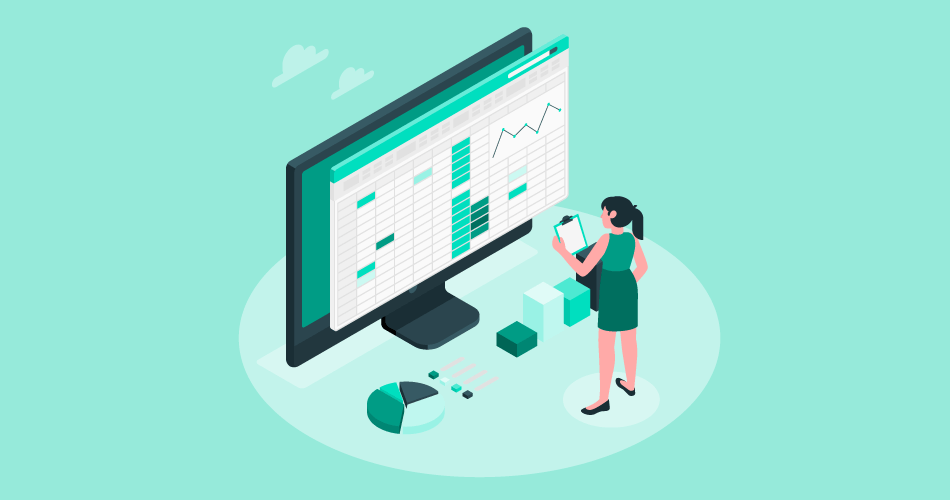
It comes as no surprise that forward-thinking entrepreneurs are becoming increasingly interested in opening their own e-commerce websites or online stores. With more and more people getting accustomed to online shopping and happy to replace the traditional visits to stores with purchases made from the comfort of their own home, it’s quite obvious that creating an e-commerce website can make a lot of sense. Still, while the idea may deserve all the praise, there is still a lot of work to be done before it generates some profit.
Launching and managing an online store are tasks that require excellent planning, some patience and a lot of passion and perseverance. There is so much involved, from inventory and stocking to purchase and efficient delivery, and all the clients expect the whole process to be seamless, without any glitches, delays or broken promises. Otherwise, they’ll turn to someone else. If you’re one of those considering starting your own e-commerce website, here are some tips that should help you manage your finances, because they are, after all, the core of any business.
1. Create a separate bank account
You want to have a clear picture of how well you’re doing and you want to access all relevant financial information quickly, without wasting time. That’s why you should never use an existing account that deals with other sources of income or expenditure as the account for your project. Instead, open a separate bank account where you can stash away all your earnings from day one. That should help you grasp the picture of your situation and progress.
Also, you’ll have a very precise picture of the taxes you’re supposed to pay. Even if you’re a sole proprietor and the law doesn’t really find it necessary for you to have a dedicated bank account, it’s still wise to have one. You can start by opening a standard business checking account and later branch out to a suitable savings account as your project develops. Just make sure you do your homework and compare the fee structure of different banks in your area in order to find a plan that won’t cost you an arm and a leg.
2. Streamlined process of accepting payments
You need to know that your first customers don’t deserve to be guinea pigs you’ll use to test the process of accepting online payments. Instead, you need to have a streamlined payment process in place before you actually open your online store. Remember that if a buyer finds the payment procedure unnecessarily long and complicated or if they seem slightly suspicious about the way you handle payments, they’ll never return to you, no matter how much they might like the products you’re selling.
Security is, needless to say, the most important aspect here. No customer will share their personal and financial details with an establishment that seems clueless about the procedure. That’s why you should first check out what your competitors are doing and how they’re dealing with this issue. Offering alternative payment methods, such as cash on delivery or third-party processors, such as PayPal, will most likely increase your potential to attract customers. Additionally, your payment process plays an extremely important role in establishing your credibility and having customers return to you.
3. Payroll method
When starting a business, it’s only natural that you want to avoid unnecessary expenditure. You might think that you can run the whole thing on your own, but you’ll soon realise that you’re wrong. No matter how small your business is, it may grow quickly and you won’t have time or knowledge to deal with every aspect of it. That’s why you need to rely on other people or technology to share some of the burden.
One example is definitely the payroll method you’re planning to implement. Will you have a person responsible for that or will you rely on software? Are you aware of the advantages of efficient personalised payroll cards or are you still writing cheques? There are many more questions, of course, such as those related to a payday schedule, taxes, invoices from freelance contributors and other elements of this rather complex system. So, make sure you deal with all that before you even think of disbursing remuneration.
4. Bookkeeping
No matter how much some entrepreneurs dread keeping track of all monetary transactions (and we all know how different laws can be in different countries), you still have to establish a bookkeeping system. It should be as concise and transparent as possible from the start and you might even want to test some bookkeeping software for that purpose.
However, as your business grows, you’ll most certainly need to have an in-house accountant or outsource an agency to both maintain the records and analyse the data and provide you with tangible analysis of your financial statements. All this should be taken care of before you announce your e-commerce website, since the system needs to be tested before it’s actually put into use.
5. Conclusion
Having a good, tested system in place before you actually start doing any business is vital for the future success of your endeavour. Financial management is the cornerstone of every successful business and you must get it right from the start if you want to avoid seeing a great idea fail. If you manage to implements such a system from the very beginning, you’ll also manage to keep various financial obstacles at bay and you’ll know exactly how well you’re doing at any given point in time. So, remember these tips if you’re planning to establish your first e-commerce website and you’ll stand much better chances of succeeding.




